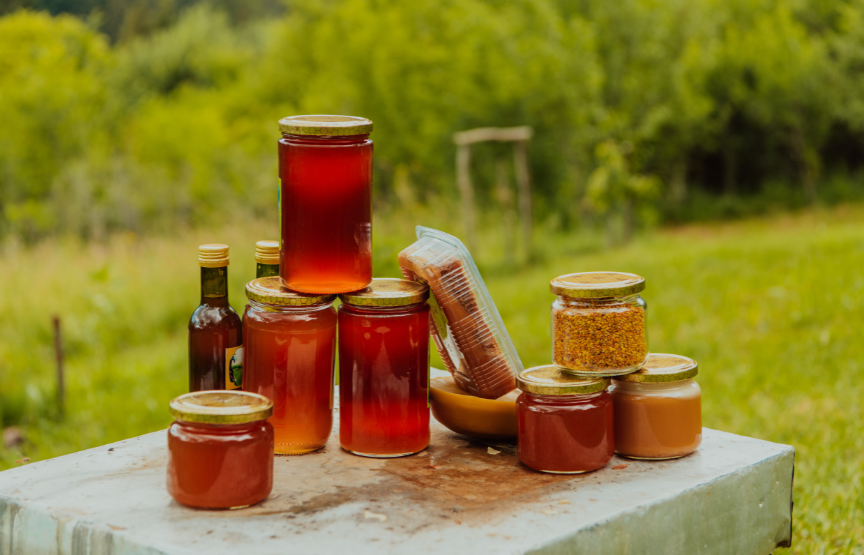The Shelf Life of Manuka Honey: How to Store It for Maximum Freshness
Manuka honey is renowned for its remarkable health benefits, but have you ever wondered how long it lasts and how to keep it fresh? As a natural superfood, Manuka honey boasts an impressively long shelf life, thanks to its unique antibacterial properties. However, proper storage is essential to maintain its quality and potency.
In this blog post, we’ll explore the shelf life of Manuka honey, how to store it for maximum freshness, and how to determine if your honey is still in top condition.
How Long Does Manuka Honey Last?
Manuka honey, like other types of raw honey, doesn’t spoil easily. When stored properly, it can last for years while retaining its beneficial properties. This longevity is due to honey’s natural composition:
Low Water Content: Honey’s low moisture level inhibits the growth of bacteria and mold.
High Sugar Content: The high concentration of natural sugars creates an environment that’s hostile to microorganisms.
Antibacterial Properties: Manuka honey contains Methylglyoxal (MGO), which provides additional antibacterial strength, making it even more resistant to spoilage compared to regular honey.
While Manuka honey doesn’t "expire" in the traditional sense, its texture, flavor, and potency may change over time if not stored correctly. For the best results, use it within 2-3 years of opening the jar, although unopened jars can last much longer.
If you’re curious about the unique qualities of Manuka honey, check out our guide to the healing benefits of Manuka honey.
How to Store Manuka Honey for Maximum Freshness
Proper storage is crucial to preserving the quality and effectiveness of Manuka honey. Here are some essential tips:
1. Keep It in a Cool, Dry Place
The ideal storage environment for Manuka honey is a cool, dry place away from direct sunlight. Exposure to heat and light can degrade its nutrients and reduce its potency over time. Store it in a pantry or cupboard with a consistent temperature, preferably between 50-70°F (10-21°C).
2. Seal It Tightly
Always ensure the lid is securely closed after each use. This prevents moisture from entering the jar, which could compromise the honey’s quality and texture. Manuka honey is hygroscopic, meaning it absorbs moisture from the air, so a tight seal is essential to keep it fresh.
3. Avoid Refrigeration
Refrigerating Manuka honey is unnecessary and may cause it to crystallize. While crystallization doesn’t affect its safety or nutritional value, it can alter the texture, making it harder to scoop or spread. If crystallization occurs, gently warm the jar in a bowl of warm water to return it to its liquid state.
4. Use Clean Utensils
Always use clean, dry utensils when scooping honey from the jar. Introducing moisture or contaminants can affect the honey’s integrity and shelf life. Avoid double-dipping spoons to keep the honey pure.
How to Tell If Manuka Honey Is Still Fresh
Although Manuka honey doesn’t spoil like perishable foods, it’s still important to check its condition if it’s been stored for an extended period. Here’s how to tell if your honey is still good:
Color and Texture: Manuka honey may darken or thicken over time, which is a natural process and doesn’t indicate spoilage. However, if you notice an unusual separation or foamy layer, it could be a sign of contamination.
Smell: Fresh Manuka honey should have a pleasant, slightly earthy aroma. If it smells sour or fermented, it may have been exposed to moisture or heat.
Taste: If the flavor has become overly bitter or sour, the honey may have degraded. A slight change in taste over time is normal, but drastic changes may indicate it’s time for a new jar.
When in doubt, it’s better to replace old honey with a fresh, high-quality product. Check out our recommendations for the best Manuka honey products.
Why Manuka Honey Has Such a Long Shelf Life
Manuka honey’s long shelf life is a testament to its natural composition and antibacterial properties. The presence of MGO, low moisture content, and high acidity create an environment where bacteria and fungi can’t thrive. Additionally, the honey’s unique antibacterial qualities help preserve its freshness and effectiveness over time.
Unlike many processed foods, Manuka honey doesn’t require preservatives or refrigeration to stay fresh, making it one of nature’s most resilient superfoods.
Final Thoughts
Manuka honey is a long-lasting, versatile superfood with numerous health benefits, from wound care to digestive health. Proper storage is key to maintaining its freshness and potency, so be sure to keep it in a cool, dry place, seal it tightly, and avoid refrigeration. By following these simple steps, you can enjoy the exceptional qualities of Manuka honey for years to come.
Ready to experience the benefits of Manuka honey for yourself? Visit our homepage for more tips and recommendations, and explore our carefully curated list of high-quality Manuka honey products.

